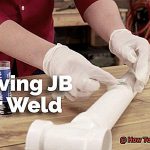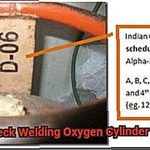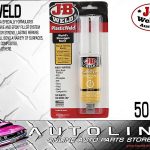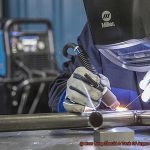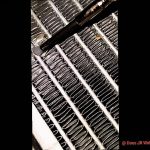Have you ever experienced the frustration of a broken kitchen gadget or cookware? It’s not an uncommon occurrence, and it can be especially disappointing if it’s your favorite tool. But don’t worry, there is a quick fix with JB Weld, a widely-used two-part epoxy adhesive. However, before you start sealing that crack, the essential question that comes to mind is – is JB Weld food safe?
This question has sparked a debate among experts and DIY enthusiasts alike. While JB Weld is popular in industries such as automotive and construction, using it to fix kitchen items requires caution. Some people believe that JB Weld may contain toxic chemicals that could contaminate the food, while others claim that it complies with FDA guidelines and is safe to use.
To get to the bottom of this debate, we need to understand the chemicals in JB Weld, their properties, and how they can affect food safety. In this blog post, we will explore the basics of JB Weld: how it works, potential risks associated with its use in food-grade repairs, and alternative food-safe adhesives you can opt for instead.
So whether you’re looking to repair a cracked mug handle or a chipped food processor blade, keep reading to find out if JB Weld is the best solution or if there are safer options available for your DIY repairs.
What is JB Weld?
Contents
This two-part epoxy adhesive has been around for over 50 years and is known for its strength, durability, and versatility in the automotive, construction, and industrial fields.
JB Weld comes in a variety of formulas, each designed for specific applications. It’s compatible with a wide range of materials such as metal, wood, plastic, ceramic, and more. The founders of the company, Sam Bonham and Jerry Byrnes, developed it to repair engine blocks, exhaust systems, and other parts in the automotive industry.
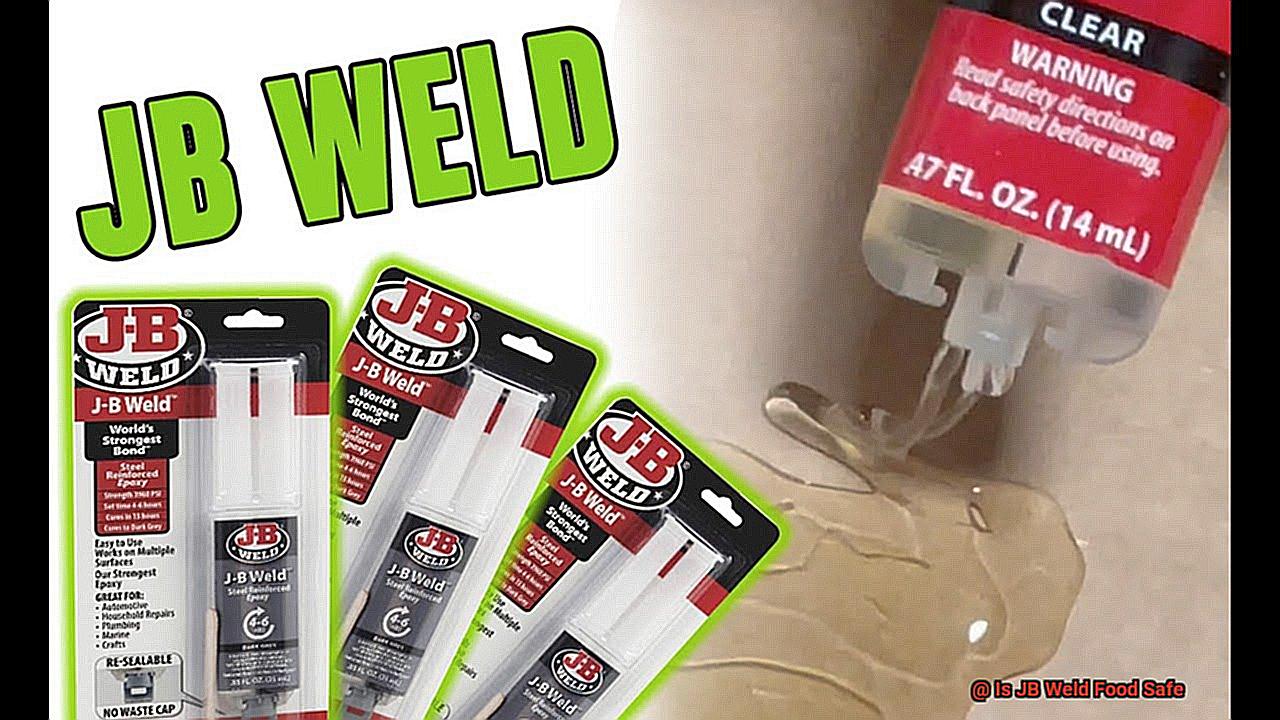
One of the best things about JB Weld is its strength and durability. It can withstand high temperatures, pressure, and vibration. Once cured, it forms a bond that is stronger than the materials it bonds together. This makes it ideal for use in many different applications.
While the manufacturer’s website recommends against using it in direct contact with food or drinking water due to the presence of chemicals that might be harmful if ingested, it’s generally considered safe once fully cured and hardened for other purposes such as household repairs or industrial manufacturing. Just make sure to follow proper safety precautions when using any chemical or adhesive product.
Overall, JB Weld is a go-to product trusted by consumers and professionals alike for many years. It’s available in multiple formulas tailored to specific applications such as plastic or high-temperature environments.
Is JB Weld Food Safe?
When it comes to fixing things, JB Weld is a go-to product for many people. Its industrial-strength adhesive is known for its durability and strength, making it a popular choice for a wide range of applications. However, if you’re considering using JB Weld for a food-related project or repair, it’s important to know that it’s not food safe.
The manufacturer clearly states on the product packaging that JB Weld should not come into contact with food or drinking water. This is because JB Weld contains chemicals such as epoxy and resins that can be harmful if ingested. These chemicals can leach into food or drinks if they come into contact with JB Weld, which can cause serious health problems if consumed.
In addition to the toxic chemicals in JB Weld, there are also concerns about trace amounts of heavy metals such as lead. Even if you’re not using JB Weld for a food-related project, it’s important to handle the product with care and take necessary precautions to avoid skin contact or ingestion.
So what should you use instead of JB Weld for food-related projects? There are many products on the market that are specifically designed for use with food, such as food-grade silicone sealants or adhesives. These products are safe for use with food and will not leach any harmful chemicals or compounds into your food or drink.
While JB Weld may be an effective adhesive for many applications, it is not safe for use with food. It’s always best to use products that are specifically designed for food-related projects or repairs to ensure the safety of yourself and others who may come into contact with the finished product.
Potential Health Risks of Using JB Weld on Food-Related Surfaces
While JB Weld is known for its strength and versatility, it’s important to understand the potential health risks it poses when used on food-related surfaces. Here’s what you need to know:
One of the main concerns with using JB Weld on food-related surfaces is the potential for toxic substances to leach into your food or beverage. This adhesive contains chemicals like epoxy resins and hardeners that can be harmful if ingested. Over time, these chemicals can seep into your meals, particularly if the surface is exposed to heat or acidic substances.
In addition to the risks of chemical contamination, there’s also a risk of physical contamination. If the JB Weld surface cracks or chips, small pieces could break off and end up in your food or beverage. This could pose a choking hazard or even cause injury if ingested.
While JB Weld may be effective for non-food-related projects, it should never be used on surfaces that come into direct contact with food or beverages. Instead, opt for materials that are specifically designed for food-related applications, such as food-grade epoxy or sealants.
These materials are safe for consumption and won’t leach harmful chemicals or metals into your meals.
When it comes to DIY projects involving food-related surfaces, safety should always come first.
Alternatives to JB Weld for Food-Related Applications
While JB Weld is a popular choice for bonding materials together, it’s not recommended for use in food-related projects. The good news is that there are several alternatives to JB Weld that are safe and reliable for use in food-related applications.
One of the best options is Food Grade Silicone Sealant. This sealant is specifically designed for use in food-related applications and is safe for use with both hot and cold foods. It provides a long-lasting seal that won’t break down over time, ensuring that your project stays secure and hygienic.
Another alternative to JB Weld is Epoxy Putty, a two-part adhesive that can bond materials together effectively. However, it’s crucial to note that not all brands of Epoxy Putty are safe for use with food. Therefore, make sure to read the label carefully before making a purchase.
Lastly, Weldbond Adhesive is another great alternative to JB Weld. This non-toxic adhesive is safe for use with both hot and cold foods and can bond a variety of materials together. It’s also waterproof, making it ideal for applications where moisture resistance is required.
Safety should always come first when working on food-related projects.
While JB Weld may not be the best option in this case, there are several alternatives available that are specifically designed for such purposes and are safe for use with both hot and cold foods.
When selecting an alternative to JB Weld, always choose a product labeled as safe for use with food and follow the manufacturer’s instructions carefully.
Tips for Repairing Kitchen Utensils and Appliances with JB Weld
If you’re looking for a strong and durable adhesive to repair your kitchen utensils and appliances, JB Weld is an excellent choice. However, it’s essential to use this product safely and correctly to ensure that your repairs are successful and safe for use.
Here, we’ll discuss some tips and precautions to consider when repairing kitchen items with JB Weld.
When working with JB Weld, safety should always come first. This product can cause skin irritation and eye damage, so it’s essential to wear protective gloves and eye goggles when working with it. Additionally, work in a well-ventilated area to avoid inhaling the strong odor of the product.
Cleaning Kitchen Utensils and Appliances Before Repairing with JB Weld
Before applying JB Weld to your kitchen item, make sure that it’s thoroughly cleaned and free from any contaminants. This will ensure that the repair job is successful and prevent any harmful substances from being sealed in during the repair process.
Applying JB Weld to Kitchen Utensils and Appliances
When applying JB Weld to your kitchen item, use the appropriate amount of product. Too much or too little can affect the strength of the bond or cause unwanted drips or leaks. Apply the product evenly and smoothly to prevent any air pockets from forming inside the repair.
Curing Time for JB Weld on Kitchen Utensils and Appliances
After applying JB Weld to your kitchen item, give it ample time to cure fully before using it again. This can take up to 24 hours, depending on the temperature and humidity level of your environment. By giving the product enough time to cure, you can ensure that your repair job is successful and long-lasting.
Alternatives to JB Weld for Repairing Food-Related Kitchen Items
While JB Weld is a versatile and durable adhesive, it’s not recommended for use on surfaces that come into direct contact with food. Therefore, it’s best to opt for food-grade epoxies and sealants for repairing kitchen items that will be used in food-related applications. By using these alternatives, you can ensure that your repaired item remains safe for use and does not pose any health risks.
JB Weld is an excellent adhesive for repairing kitchen utensils and appliances. However, it’s essential to use it safely and correctly to ensure that your repairs are successful and safe for use.
IRTUkEyPrvc” >
Conclusion
In conclusion, the age-old question of whether JB Weld is food safe has stirred up quite a buzz in both expert and DIY circles. This popular two-part epoxy adhesive finds its way into many industries, but when it comes to fixing kitchen items, caution is key due to potential health hazards associated with its use in food-grade repairs. JB Weld contains chemicals that can be harmful if consumed, and some products may even contain trace amounts of heavy metals like lead.
Therefore, it’s not recommended for use on surfaces that come into direct contact with food or drinks. But don’t fret. There are plenty of alternatives available that are specifically designed for use in food-related applications and are safe for consumption. Food-grade silicone sealants or adhesives, epoxy putty (if labeled as safe for use with food), and Weldbond Adhesive are all excellent options to consider.
When repairing kitchen utensils and appliances with JB Weld, proper safety precautions should be taken. Be sure to wear protective gloves and eye goggles while working in a well-ventilated area. It’s also crucial to thoroughly clean the item before applying the adhesive and allow ample time for curing before using it again.
Although JB Weld may work wonders in many applications, safety should always be top of mind when working on projects involving food-related surfaces.
By choosing alternative products labeled as safe for use with food and following proper safety procedures when using JB Weld, you can ensure your DIY repairs are successful and safe for consumption.

